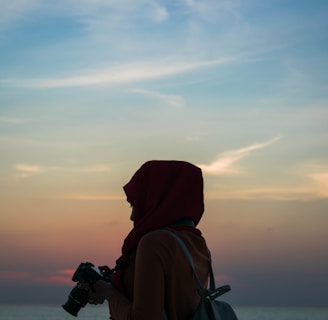The Ban on Hijabs at the Olympic Games: A Message of Exclusion


Recently, the French Sports Minister, Amélie Oudéa-Castéra, made an announcement stating that French athletes will not be allowed to wear the hijab during the upcoming Paris 2024 Olympic Games. This decision, aimed at upholding France's "regime of strict secularism," has sparked controversy and drawn criticism from various quarters, including the United Nations and the Islamic Solidarity Sports Federation (ISSF).
The ISSF, which represents 59 countries and advocates for inclusivity and respect for cultural diversity, has strongly condemned this ban. In a statement released by the Athletes Commission of the ISSF, it emphasizes that such a ban sends a message of exclusion and contradicts the principles of equality and inclusivity that the Olympics stand for.
The debate surrounding the ban on hijabs in sports is not a new one. It raises important questions about religious freedom, cultural identity, and the role of secularism in society. While France's commitment to secularism is well-known, critics argue that this ban infringes upon the rights of Muslim athletes to express their religious beliefs and cultural identity.
Supporters of the ban argue that it is necessary to maintain the neutrality and fairness of sports competitions. They contend that religious symbols, including the hijab, may give certain athletes an unfair advantage or create divisions among participants. However, opponents argue that this reasoning is flawed and discriminatory, as it targets a specific religious group.
The Olympic Games have long been a symbol of unity, bringing together athletes from diverse backgrounds and cultures. The Games aim to promote inclusivity, respect, and understanding among nations. Therefore, the ban on hijabs at the Paris 2024 Olympics goes against the spirit of the event and risks alienating Muslim athletes.
It is important to recognize that hijabs have been allowed in other international sports competitions, such as the FIFA World Cup and the Asian Games. These events have successfully accommodated the religious and cultural practices of athletes, without compromising the integrity of the competition.
By banning the hijab, France risks sending a message that it is not welcoming or accepting of athletes who choose to express their religious beliefs. This goes against the principles of diversity and inclusion that the Olympics strive to uphold.
Instead of excluding athletes based on their religious attire, efforts should be made to create an environment that embraces and celebrates cultural diversity. This can be achieved through education, awareness, and fostering a spirit of acceptance within the sporting community.
The ban on hijabs at the Olympic Games in France is a contentious issue that highlights the tension between secularism, religious freedom, and inclusivity. It is crucial for all stakeholders involved to engage in dialogue and find a balanced solution that respects the rights and identities of all athletes.
